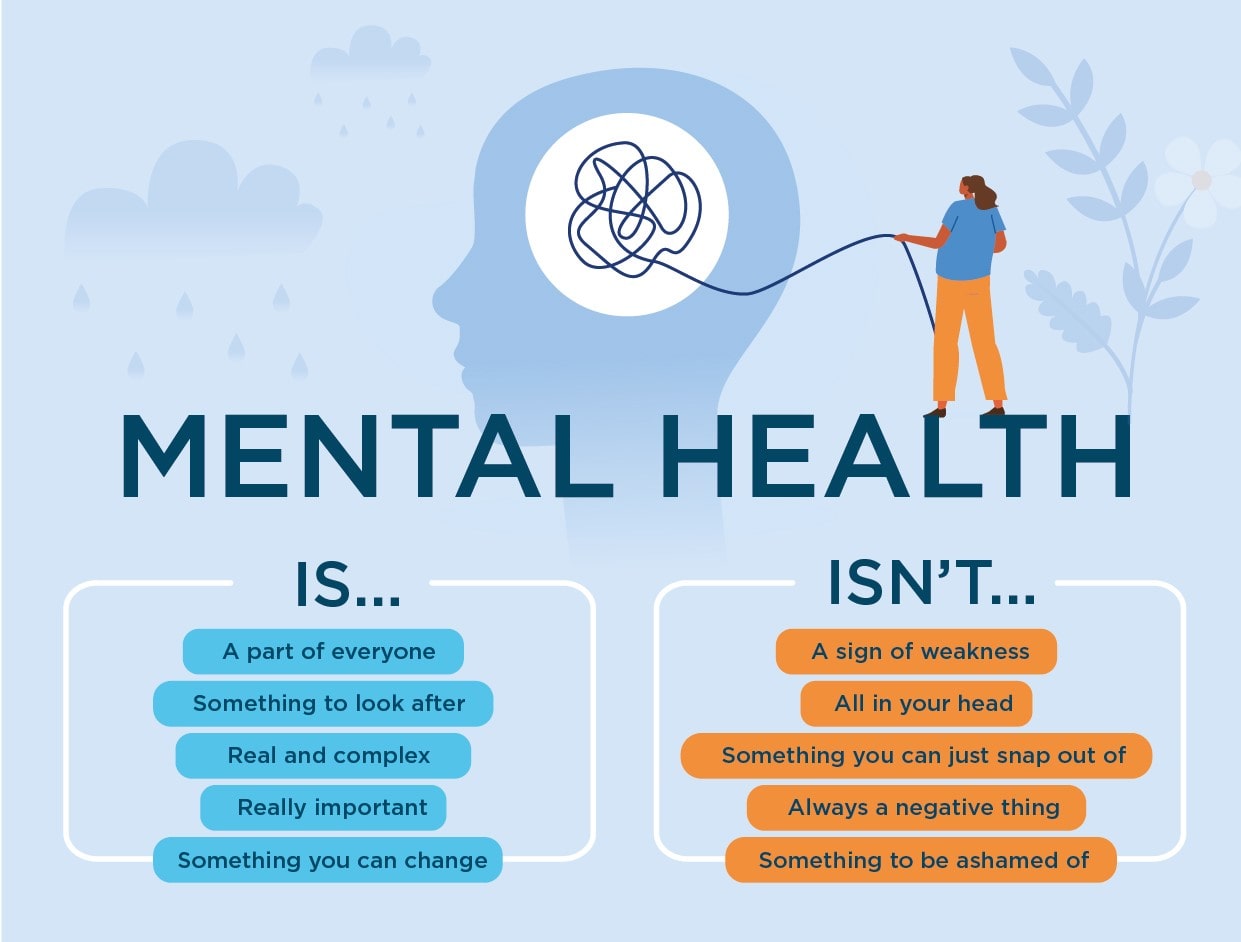Mental health symptoms: what they are and when to be concerned
Understanding the symptoms of poor mental health is vital to getting support if you need it. Find out what causes mental health issues and how to get help.
The term ‘mental health’ is a way of talking about our emotional, psychological and social wellbeing. It exists on a spectrum and we can experience periods of good or poor mental health throughout our lives.
Good mental health doesn’t mean feeling happy all the time. Instead, it’s about being able to manage life’s challenges, work productively, maintain relationships and adapt to change or adversity. Likewise, poor mental health isn’t usually a fixed state.
Mental health affects how we think, feel and behave in daily life, as well as how we cope with stress and relate to others. It’s shaped by a combination of factors, including biology (such as brain chemistry or genetics), life experiences (like trauma and stress) and social circumstances (including community support and economic stability).

Around one in four adults in England experience a mental health problem each year, so it’s not uncommon. Mental health can decline gradually making it difficult to differentiate from having a bad week or experiencing a normal response to stress.
Over time, however, these small shifts can build into patterns that affect daily life. Noticing these signs early can help you take action before things get harder to manage.
Early warning signs may appear subtly at first and are easy to dismiss:
When mental health continues to decline, the impact often becomes more visible:
Poor mental health can affect people in different ways, meaning that not everyone will experience the same symptoms.
However, here are some of the common symptoms of mental health problems in adults:
Mental health concerns don’t usually have a single cause. They often develop through a mix of biological, psychological and environmental factors – sometimes called the bio-psycho-social model. Common influences include:
Certain factors, like major life transitions, stress, childhood trauma or addiction problems can also make someone more vulnerable.
It’s important to remember you don’t always need a specific reason for struggling. Mental health concerns can affect anyone, and experiencing them is not a sign of weakness.
Reaching out for support with your mental health can feel daunting, but getting help early can make recovery quicker and reduce disruption to daily life. Consider seeking help if you:
Support can come from different sources. Your GP can be a good place to go for initial guidance and signposting.
For fast, expert support, Priory’s private mental health assessment offers a confidential, one-to-one space with a specialist, without long waiting times.
If you need further support, Priory’s provides fast access to private mental health treatment at a network of sites across the UK – delivered by world class teams of specialists.
Your care and presence can make a real difference to someone struggling with their mental health. Signs they may need support include:
If you notice these signs, start a gentle conversation in a private, calm space. Use non-judgemental language (e.g. “I’ve noticed you seem down and I’m worried about you”), listen more than you speak, and be patient if they’re not ready to open up. Encourage them to seek help and remind them there’s no shame in struggling with mental health.
Supporting someone can be emotionally demanding, so look after yourself too – stay connected to your support network, make time for things you enjoy, and reach out for help if you feel overwhelmed.
Self-care is a great way to improve your mental health. Explore practical tips and tools in our self-care hub.
Yes. With the right support and strategies, most people see a real improvement over time.
If you notice persistent changes in mood, thoughts or behaviour that affect daily life, this could indicate a mental health problem.
If symptoms are causing distress or affecting your ability to function, and they last more than a couple of weeks, it’s a good idea to seek help.